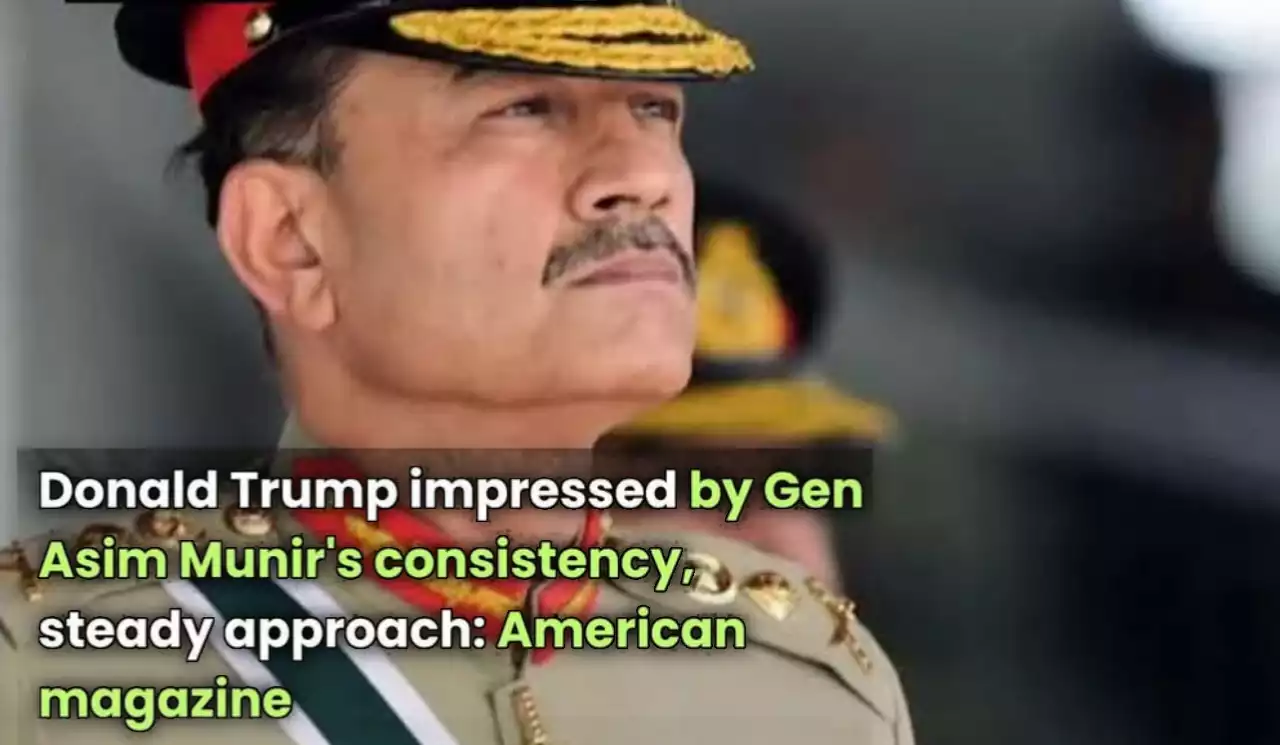US President Trump Praises Pakistan’s General Munir for Regional Stability
Pakistan’s military leadership has gained significant international recognition following a recent report by The National Interest magazine. The American magazine ‘The National Interest’ has acknowledged Field Marshal Syed Asim Munir’s successful policies, describing him as a stabilizing force who has earned the admiration of US President Donald Trump through his consistent and steady approach to regional challenges.
This development marks a notable shift in US-Pakistan relations, particularly given the historically strong ties between Washington and New Delhi. Pakistan is not just on Washington’s radar, it’s in the inner circle, at least for now, according to recent diplomatic assessments. The relationship between Trump and Pakistan’s Army Chief has evolved beyond traditional diplomatic protocols, with multiple high-level meetings taking place throughout 2025.
Background Context
The transformation in US-Pakistan relations began taking shape when President Trump made unprecedented remarks about Pakistan’s cooperation in counter-terrorism efforts. This shift became more pronounced following Trump’s joint address to Congress on March 5, 2025, where he commended Pakistan for its collaborative stance on security matters.
Pakistan army chief, Field Marshal Asim Munir, has held an unprecedented one-on-one meeting with United States President Donald Trump at the White House, where the two leaders spoke for more than two hours. This extensive dialogue demonstrates the level of trust and communication that has developed between the two nations’ leadership.
The diplomatic breakthrough gained momentum after Pakistan’s military successfully intercepted Indian fighter jets in May 2025. This action showcased Pakistan’s defensive capabilities while maintaining regional stability, a approach that resonated well with the Trump administration’s preference for strong, decisive leadership.
Strategic Implications
General Munir’s diplomatic strategy has proven effective in several key areas. His clear communication style and predictable approach have appealed to President Trump’s preference for straightforward international partnerships. The Pakistani military leader has successfully balanced regional security concerns while maintaining productive dialogue with Washington.
Pakistan army chief Asim Munir is on his second visit to the US in less than two months to meet top American military officials, signaling improving ties between the countries. This frequency of high-level diplomatic engagement reflects the growing importance of Pakistan in US strategic calculations for South Asia.
The economic dimension of this relationship has also strengthened significantly. Following the diplomatic meetings, substantial trade agreements have been announced, while the US has simultaneously imposed significant tariffs on Indian goods, signaling a clear shift in regional preferences.
Regional Impact
The strengthening US-Pakistan ties have created ripple effects across South Asia. India’s traditional position as Washington’s preferred regional partner faces new challenges, particularly after the May 2025 military confrontation where Pakistan demonstrated superior air defense capabilities.
Pakistan Army chief General Asim Munir, on his second official visit to the United States in two months, delivered a speech to the Pakistani-American community in Tampa, Florida, showing how the military leadership is also engaging with diaspora communities to build broader support for bilateral relations.
The water dispute over the Indus River system has emerged as another critical factor in regional dynamics. Pakistan has made clear that any attempts to restrict water flow would be considered acts of war, demonstrating the high stakes involved in South Asian geopolitics.
Future Outlook
Trump Pakistan relations have seen a sudden and surprising rapprochement, driven by strategic deals and diplomatic overtures from Islamabad. This warming relationship appears likely to continue, given the mutual benefits both nations are deriving from increased cooperation.
The success of General Munir’s approach provides a template for effective diplomacy with the Trump administration. His emphasis on consistency, clear communication, and practical cooperation has proven more effective than traditional diplomatic protocols.
However, experts advise caution regarding the long-term sustainability of this partnership. US foreign policy can shift rapidly, and Pakistan must continue building institutional relationships beyond individual personal connections.
Conclusion
Field Marshal Asim Munir’s recognition by The National Interest magazine reflects a broader transformation in US-Pakistan relations. His steady leadership approach has not only impressed President Trump but has also repositioned Pakistan as a key strategic partner in South Asian affairs.
The success of this diplomatic initiative demonstrates how consistent, principled leadership can reshape international relationships even in traditionally complex regional dynamics. As these ties continue to develop, both nations appear positioned to benefit from enhanced cooperation across military, economic, and strategic domains.







